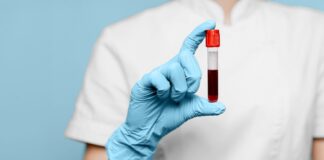A recent study reveals a simple, accessible, and effective method for managing menopause symptoms that is rarely discussed: self-pleasure. Researchers found that regular masturbation offers meaningful relief from mood swings, sleep disturbances, vaginal dryness, and hot flashes, yet remains largely absent from both medical conversations and personal care routines.
The Study Findings
The Kinsey Institute surveyed approximately 1,200 women aged 40 to 65 in the U.S. about their experiences with menopause and symptom management. While 25% engaged in exercise and 21% adjusted their diets, only 14% reported using masturbation as part of their strategy.
Despite low adoption, masturbation scored an average effectiveness rating of 4.35 out of 5, comparable to hormone therapy (4.2) and exceeding lifestyle changes (below 4.0). Nearly half of perimenopausal women found that self-pleasure improved at least one symptom, particularly mood and sleep.
The Science Behind the Relief
The benefits stem from the neurochemical and physiological effects of orgasm. Endorphins and oxytocin released during arousal ease pain and promote relaxation, supporting better sleep, lower stress, and mood stability.
Physiologically, arousal increases blood flow to vaginal tissue, helping maintain elasticity and lubrication – a common concern as estrogen levels decline. This combination addresses both the emotional and physical challenges of menopause.
Why Doctors Aren’t Talking About It
The study also highlighted a critical gap in healthcare communication. Only 7% of women reported that their doctor had ever suggested masturbation as a menopause management tool. This reflects a broader taboo surrounding female pleasure, which leads to under-education in medical training and limited discussion in clinical settings.
However, younger perimenopausal women showed greater openness to exploring self-pleasure for relief, with two-thirds stating they would consider it more often if informed of its potential benefits.
A Holistic Approach to Menopause
Menopause management doesn’t have to be one-size-fits-all. Hormone therapy, nutrition, exercise, and supplements all play a role, but self-pleasure offers an additional, often overlooked, avenue for relief.
For women navigating this transition, knowing that an effective and natural tool is within their control is empowering. The key is expanding the conversation around holistic menopause support to include all evidence-based options.






















